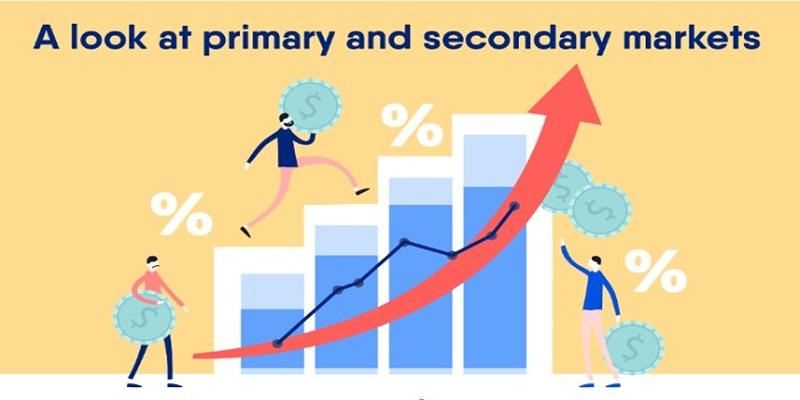Advertisement
10 Steps to Becoming a Day Trader
Dec 04, 2024 By Rick Novak
Are you looking for a way to make money from home? Have you ever thought about becoming a day trader? Day trading is an exciting and potentially lucrative career, but it's important to approach it with the right knowledge. Fortunately, there are plenty of resources available today that can help even novice traders learn the basics of day trading. In this blog post, we'll provide a comprehensive guide outlining 10 key steps to take if you're serious about becoming a successful day trader. So whether you're just getting started or ready to dive into the world of day trading, read on for our essential advice and tips!
1. Learn the basics of day trading:
Before you start trading, it's vital to understand the basics of day trading. This includes learning how stock markets work, understanding different order types and finding out which brokers offer the best prices.
2. Use a demo account to practice:
Most online brokers offer a demo account that allows you to practice day trading without risking real money. Take time to familiarize yourself with all the features available on your broker’s platform before moving on to real money trades.
3. Create a risk management plan:
One of the most important elements of successful day trading is having an effective risk management plan in place. Decide ahead of time how much capital you're willing to risk per trade, as well as how often you'll take profits or losses.
4. Set up your trading station:
Set up a comfortable workstation where you can easily monitor the markets and make trades without distractions. It should include two computer monitors, a reliable internet connection, and all the tools and software you need for day trading.
5. Develop a trading strategy:
Create a trading strategy that outlines your goals, risk tolerance, entry and exit rules, as well as any other factors you consider important. A clearly defined plan will help keep you disciplined in times of uncertainty or when faced with difficult decisions.
6. Track your performance:
Once you've started trading, it's essential to track your progress and review your results regularly to identify areas for improvement. Use a spreadsheet or tracking software to record your trades, analyze your performance, and determine whether you're on track to reach your goals.
7. Read the news:

Stay up-to-date on financial news and the markets by reading reputable sources such as newspapers, magazines and blogs. This will help you stay informed and make better trading decisions.
8. Stay focused:
Successful day trading requires focus and discipline. Avoid chasing trends or making emotional decisions - stick to your strategy, take calculated risks and stay disciplined.
9. Join a community of traders:
Join online forums or trading groups to connect with other traders who can offer valuable advice and insights into successful day trading techniques.
10. Get familiar with different types of trades and assets:
Understand the different types of trades, such as swing trading, scalping, and momentum trading. Research different assets and markets to find those that fit your trading style.
Becoming a successful day trader takes dedication and hard work, but with these 10 steps you'll have the knowledge and resources needed to start your journey towards financial freedom.
Essential tips for making money as a day trader:
1. Preparation is key: Research the markets, strategies and brokers before starting to trade.
2. Risk management: Set a risk limit for each trade you make and stick to it.
3. Use a demo account: Practice on a demo account before trading with real money.
4. Monitor your performance: Track your results regularly so you can identify areas for improvement.
5. Create a strategy: Develop an entry and exit plan for each position you take in the market and follow it consistently.
6. Read the news: Stay up-to-date on financial news and markets by reading reliable sources such as newspapers, magazines and blogs.
7. Keep focused: Avoid making emotional decisions - stay focused on your strategy and take calculated risks.
8. Join a community: Connect with other traders to gain valuable insight into successful trading techniques.
9. Get familiar with different markets: Understand different types of trades and research different assets and markets to find those that fit your trading style.
10. Compare brokers: Shop around for the best fees and commissions - some online bro- kers offer the best prices.
Benefits of day trading:

1. Financial gain: Day trading offers the potential to make a substantial amount of money in a short period of time.
2. Flexibility: You can choose when and where you trade, allowing you to work around other commitments or travel plans.
3. Time-efficient: With day trading, your trades are completed quickly so there isn’t much need for long-term positions or analysis.
4. Control over risk: You have control over how much capital you’re willing to risk per trade, as well as how often you'll take profits or losses.
5. Increased market knowledge: By researching different markets and strategies, you can expand your knowledge and become a better trader over time.
Conclusion:
Day trading can be an incredibly rewarding way to make money but it also carries substantial risks. Before you get started, make sure to research the markets and strategies thoroughly, set a risk limit for each trade you make, practice on a demo account, track your performance and read financial news regularly. It’s also important to stay focused, join a community of traders and become familiar with different types of trades and assets. With dedication and hard work, day trading can offer both financial gain and increased market knowledge - giving you the opportunity to reach your financial freedom goals.
FAQs:
Q: What should I know before starting to day trade?
A: Before you start day trading, it’s important to research the markets and strategies thoroughly, set a risk limit for each trade you make, practice on a demo account, track your performance and read financial news regularly. It’s also advisable to stay focused, join a community of traders and become familiar with different types of trades and assets.
Q: What are the benefits of day trading?
A: The main benefits of day trading are financial gain, flexibility, time-efficiency, control over risk and increased market knowledge. With dedication and hard work, day trading can give you the opportunity to reach your financial freedom goals.
Advertisement

A Look at Primary and Secondary Markets

Investing in Stock Rights and Warrants

Interest In Capitalization: What It Is, How It Operates, and a Sample

The Battle of 401(k) Providers: Charles Schwab vs Employee Fiduciary

What Are S and P Core Earnings?

Countries with the Strongest Demand for Gold Jewelry

What Are The Most Crucial Aspects Of Understanding Ordinary Annuity?

A Comprehensive Guide to Selling Stock in Your Company

What's A Financial Hub

